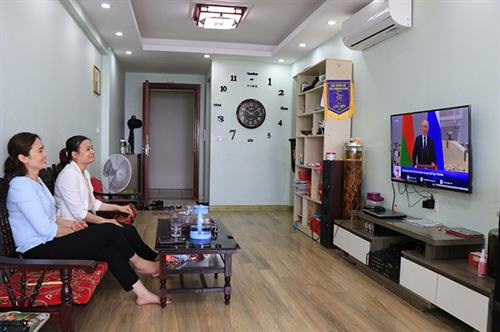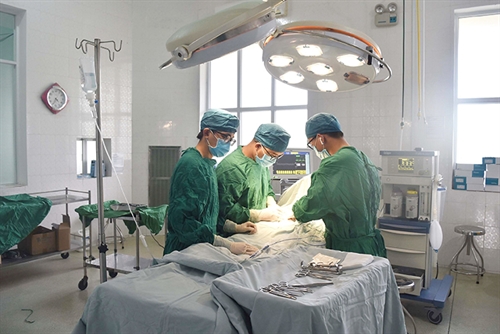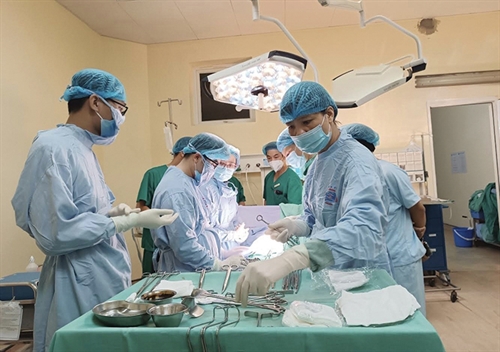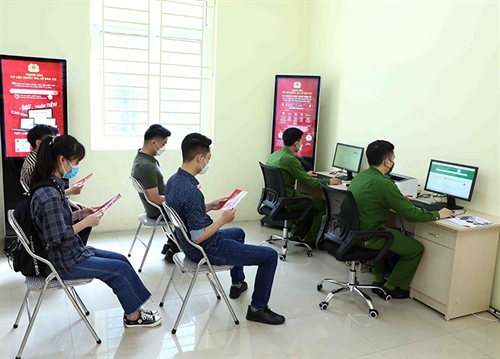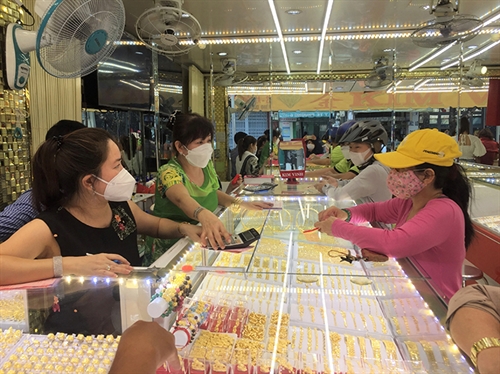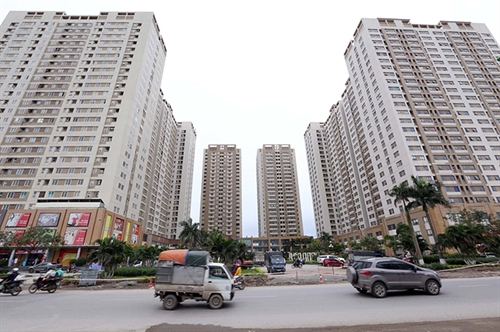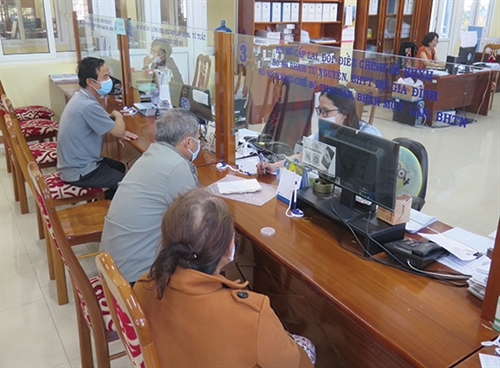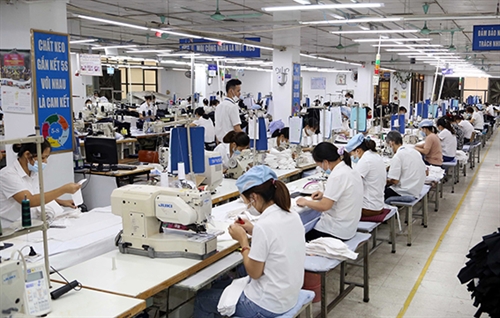In August, an unfortunate event happened to the family of Trinh Ky An, a Ho Chi Minh City resident. His grandmother fell down and consequently broke her ankle and dislocated her hip. The old lady was taken to a central-level hospital located in the city and, after diagnosis, doctors recommended hip replacement. However, after a few minutes in the operating room, she was moved back to the ward and the reason for the postponement of the operation was “lack of necessary medical supplies.”
“Although the hospital promised that it would soon arrange an operation for my grandmother, the feeling of insecurity still crept over the whole family. Fortunately, my grandmother’s surgery at last took place a day later,” Ky An wrote in an article published in the online newspaper Tuoi Tre’s “Readers Become Reporters” column.
The same situation also occurred with a friend of Ky An who suffered severe kidney failure and had to take anti-rejection drugs after a kidney transplant. However, since the end of April, the hospital where the friend received treatment stopped allocating immunosuppressant drugs, which were covered by the Health Insurance Fund, to its patients simply because the hospital had run out of drugs. Worried about her health, Ky An’s friend decided to buy drugs on the market by herself with a considerable amount of money.
These above-mentioned cases were not particular.
In a talk titled “Solutions to overcoming shortage of medicines and medical supplies” recently held by the Vietnam Government Portal, the Director of the National Otolaryngology Hospital admitted that the hospital is currently in lack of medicines and medical equipment and, therefore, at peak time, has to send patients to other hospitals for such technical services as CT and MRI scans and surgical procedures.
Similarly, the Vietnam National Eye Hospital cannot perform vitreous replacement surgery for patients as the replacements are out of stock. The situation is not better for other renowned hospitals like the Vietnam National Cancer Hospital, Hanoi Oncology Hospital, and Bach Mai Hospital.
The English daily Việt Nam News cited data from the Ministry of Health to reveal that 28 out of 34 health departments and 12 out of 21 central-level hospitals nationwide face a shortage of drugs; 26 out of 34 health departments and 15 out of 21 central-level hospitals reported a lack of medical consumables and clinical chemistry reagents.
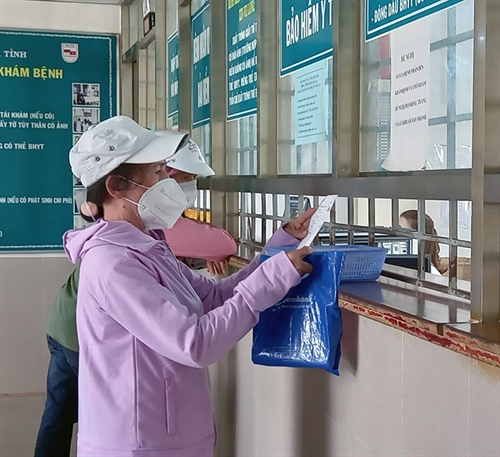 |
| Patients queue up for heath insurance-covered medicines at Phu Yen province’s General Hospital__Photo: Xuan Trieu/VNA |
Causes and solutions
The Ministry of Health blamed the Covid-19 pandemic for the lack of drugs and medical supplies in some localities and at central-level hospitals. Accordingly, the outbreak of the pandemic in 2020 and 2021 led to the collapse of the global supply chain and surge in prices of input materials of the pharmaceutical industry, which made it more difficult to purchase medicines and medical supplies.
But the pandemic is just one of the reasons that have brought about the situation. Others include inadequacies in regulations on bidding for procurement of drugs and medical consumables as well as the fear among hospital managers in implementing these regulations.
Right from the middle of 2022, the Government, Prime Minister, and Ministry of Health have hold not a few meetings and working sessions with leaders of hospitals, health experts and related sectors to seek solutions to the shortage of medical supplies, focusing on scrutinizing regulations on public procurement as well as policies on socialization and public-private cooperation in the field of health. Both the cabinet and the premier highlighted the need to remove complicated procedures, revise inappropriate regulations and enhance hospital leaders’ sense of responsibility.
In order to remedy the situation, it is necessary to understand the mechanism of operation of public medical establishments. In fact, due to limited sources of funding from the State, most public hospitals can hardly afford to buy modern medical devices, e.g., medical imaging and lab equipment, etc. They instead enter into cooperation contracts with private investors under which hospitals use private investors’ medical equipment to provide medical examination and treatment services and share profits earned from these services with the latter or “borrow” equipment from businesses that win bidding packages for supply of medical consumables and clinical chemistry reagents.
In the first case in which public hospitals use private investors’ equipment to provide medical examination and treatment to patients, they are not required to go through the open bidding process, hence, wrongdoings are likely to occur and in fact many violations have been detected, resulting in an increase in healthcare costs which will cause damage to both patients and the Health Insurance Fund.
However, it is a completely different story when talking about the second case in which hospitals “borrow” machines and equipment from contractors that win bidding packages to provide medical supplies.
Under current regulations, all financial resources of public hospitals are managed under the laws on the state budget and public investment. Hence, all procurements, including drugs, medical consumables and clinical chemistry reagents, must undergo bidding procedures. As contractors lend machines and equipment to hospitals after they have won bidding packages to supply clinical chemistry reagents, such lending/borrowing does not affect the bidding process. So it can be said that this form of cooperation is beneficial to all stakeholders: the State does not need to invest in costly machines, public hospitals are equipped with modern devices, and patients are provided with medical services at appropriate charges.
After considering the situation, the Ministry of Health has recently proposed competent authorities to officially allow hospitals to borrow medical equipment of contractors that win bidding packages to provide medical supplies. However, when referring to Decree 151/2017/ND-CP detailing a number of articles of the Law on Management and Use of Public Property, there are no provisions allowing public agencies, organizations and units to borrow assets for use. Current regulations are also silent about whether expenses for tests serving medical examination and treatment performed on borrowed machines and equipment are covered by the Health Insurance Fund. In addition, the Bidding Law does not mention the form of bidding for testing service packages under which contractors will provide lab machines, equipment and reagents.
Problems in procurement of medical supplies also lie in the bidding process. Reality shows that the time to complete all procedures for a bidding package to procure drugs or medical supplies usually ranges between six and eight months but the term of the contract signed with the winning bidder is merely one year. As a result, medical establishments need to spend a lot of time and effort to organize bidding but still fail to ensure timely and sufficient supply of necessary drugs and medical consumables.
Another reason behind the shortage of medicines is related to issuance of registration numbers to drugs. According to Le Van Son, President of the Board of Directors of the Vietnam Pharmaceutical Corporation, one tough challenge facing domestic pharmaceutical companies is the tardiness of state agencies in issuing drug registration numbers as it currently takes about two or even three years to obtain registration numbers from the Drug Administration of Vietnam.
According to experts, in order to find out a comprehensive solution to the scarcity of medicines and medical supplies, it is necessary to revise not only the Law on Medical Examination and Treatment but also the Bidding Law, the Law on Price and Decree 151 of 2017 on management and use of public assets.
Specifically, the amended Law on Bidding should, in its chapter on procurement of drugs and medical consumables, stipulate as follows: “Medical examination and treatment establishments shall organize open bidding for testing services (covering all necessary machines, equipment and clinical chemistry reagents) for each five-year period (equaling the average time for depreciation of machines and equipment).” Hence, the bid-winning contractor will provide both lab machines and equipment and clinical chemistry reagents to the hospital. When the contract expires, bidding will be held again. By this way, the hospital always has the right to choose the best contractor without having to either spend its own money to buy or rent lab machines and equipment or rely on the entity that lends or donates machines and equipment.
